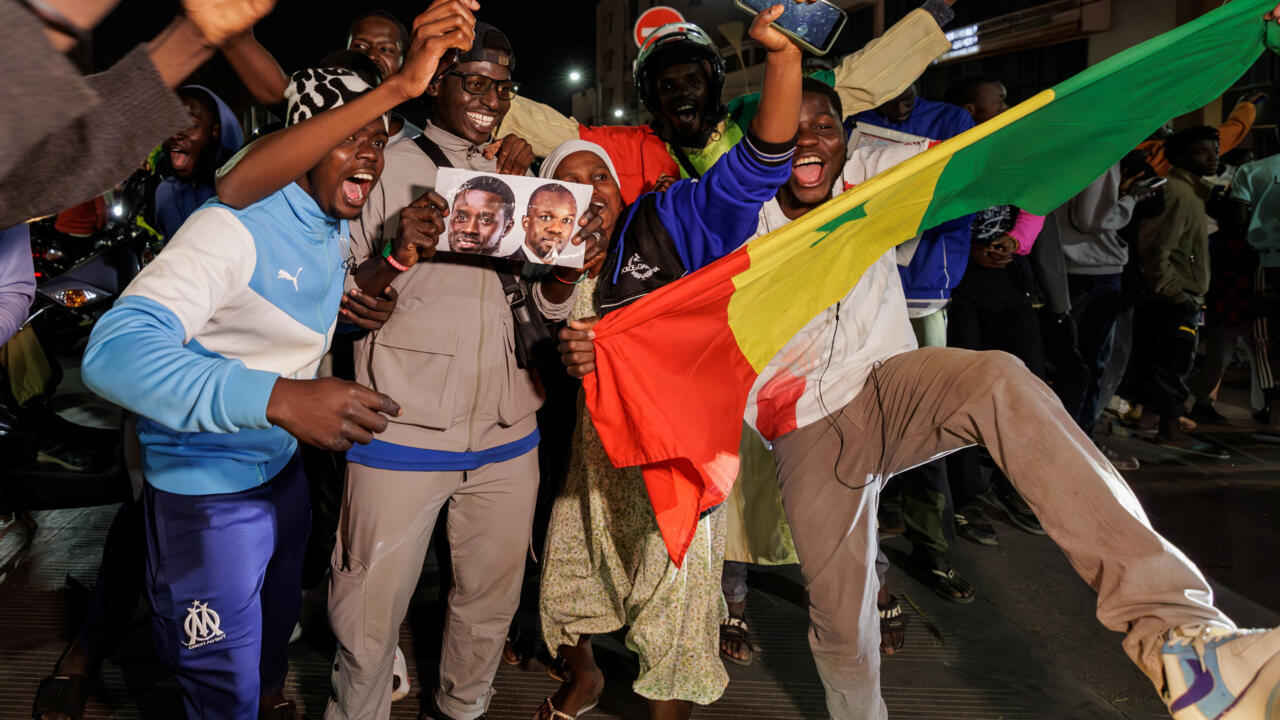The suspense was short-lived. Monday March 25, the day after the first round of the Senegalese presidential election, the government candidate Amadou Ba conceded, at midday, his defeat in favor of the opposition candidate Bassirou Diomaye Faye.
Already the evening before, after the counting of the ballots and while the first results were revealed office by office, his supporters took to the streets of Dakar to celebrate this victory which promises to be large, although it must still be confirmed by the publication of official results.
Bassirou Diomaye Faye is therefore preparing to take on the role of fifth president of the Republic of Senegal, succeeding President Macky Sall, whose mandate will end on April 2 after twelve years in power. This is an extraordinary turnaround for this candidate, who, less than ten days ago, was still incarcerated, like his mentor, the opposition figure Ousmane Sonko.
Determined opposition
The road to the presidency has been long and strewn with pitfalls for the Sonko camp, whose leading figure has been the subject of legal proceedings for several years. Sentenced on June 1, 2023 to two years in prison for “corruption of youth” in a morals affair, Ousmane Sonko also received a six-month suspended prison sentence for defamation.
Two fabricated cases according to the person concerned, who had criticized the exploitation of justice by those in power. In a position of ineligibility, the leader of the opposition then gave his support to the number two of his political party, Bassirou Diomaye Faye, also in detention but not yet convicted, therefore still eligible.
“Ousmane Sonko and Bassirou Diomaye Faye have demonstrated great political intelligence in their careers,” underlines Stéphane Ballong, Africa editor-in-chief of France 24. “Unlike certain countries where opposition parties give up in the face of blockages, They followed their logic to the end. They never gave up participating in an election in Senegal, despite the disqualification of their champion."
In addition to the candidacy of Bassirou Diomaye Faye, deputies from the former Pastef (African Patriots of Senegal for Work, Ethics and Fraternity, a party dissolved by the authorities last July), had provided their sponsorship to a another opposition candidate, Habib Sy, of the Senegalese Democratic Party. The Sonko camp's "plan C" finally withdrew three days before the presidential election in favor of Bassirou Diomaye Faye, released, just like Ousmane Sonko, thanks to an amnesty law decreed by Macky Sall.
Willingness to change
The victory of Bassirou Diomaye Faye is also that of a radical program embodied for several years by Ousmane Sonko, breaking with the Macky Sall presidency. Among their flagship measures: the exit of the CFA Franc inherited from colonization, the renegotiation of mining, hydrocarbon and even defense contracts, as well as an overhaul of the presidential system to subject it to safeguards.
During the campaign, many voters called for change, and the candidacy of Bassirou Diomaye Faye "aroused a lot of hope" explains Sarah Sakho, the France 24 correspondent in Dakar. The pan-Africanism that he highlights with themes like “the independence of Senegal, the reappropriation of resources and national preference speak a lot to young people,” she underlines. A particularly large electorate in a country where 75% of the population is under 35 years old.
This thirst for change is also expressed on questions of employment and the cost of living. Because although Senegal experienced strong economic growth under Macky Sall, favored by the president's major works policy, unemployment remains high, particularly among young people. Just like inflation, which has increased in recent years and is weighing on the standard of living of households.
Sanction vote for the presidential camp
In addition to the popular enthusiasm aroused by the project carried by Bassirou Diomaye Faye, many observers see in the lightning victory of the anti-system candidate a sanction vote against the outgoing president Macky Sall.
This stinging defeat for the presidential camp comes after the deep political crisis caused by the surprise cancellation of the presidential election on February 25 by the president, then its postponement by the National Assembly until December 15. A postponement finally canceled by the Constitutional Council, before the new date of March 24 was set.
For Mamadou Diouf, professor of African studies at Columbia University in New York, this recent crisis is only the ultimate manifestation of a much deeper evil. "During the last years of President Macky Sall's regime, we had the impression that Senegal was entering the cycle of classic African authoritarianism," he laments.
Hundreds of demonstrators were arrested during the episodes of unrest experienced by the country in March 2021, then in June 2023, around the legal setbacks of Ousmane Sonko, but also the suspense maintained by the outgoing president as to the possibility of a third term. Several dozen Senegalese lost their lives during these demonstrations which were repressed by the police.
“The Senegalese experienced the period 2021-2023 as a great trauma,” says Alioune Tine, president of the Senegalese think tank Afrikajom. “This produced an extremely strong feeling of rejection against the Macky Sall regime, a feeling of frustration and revenge.”
For this expert on Senegalese politics, Ousmane Sonko and Bassirou Diomaye Faye "were seen as the lifeline of a democracy in danger". “Their victory is not a surprise, even if the recent political crisis put democracy to the test. The reed bent but it did not break, that is Senegalese democracy,” he concludes, relieved.
Read alsoBassirou Diomaye Faye, close to Sonko, on the verge of becoming the youngest president of Senegal
The France 24 summary of the week
invites you to look back at the news that marked the week
I subscribe
Take international news everywhere with you! Download the France 24 application

